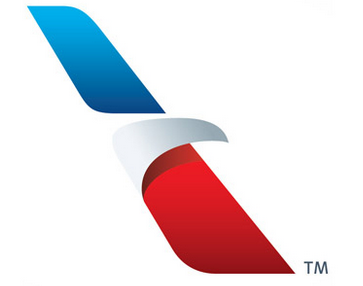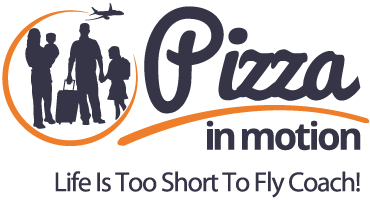What’s Next For American Airlines After Getting Rid Of Free 24-Hour Hold On Revenue Flights?

The transition of American Airlines continues with news that they are planning to eliminate their 24-hour hold option on revenue tickets in lieu of allowing customers to request a refund of a purchased ticket for up to 24 hours after purchase.
There were rumors about this change a few weeks ago, rumors that seemed likely to be true. But, American didn’t confirm them, instead saying the matter was still under consideration. They’ve since confirmed the rumors as true, enacting the change this past Friday.
Technology governs so much of what we do today, and so many systems are dependent on each other to work right. I’m not 100% sure that American was still exploring this decision a few weeks ago. They would have had to already started the tech process so that the new programming could be tested with all the various partners American works with.
View From The Wing notes that the hold feature would still be available for online purchases for a while longer. As of this morning, I can still see online hold as an option. That might be an indication that American really did make this decision very recently and hasn’t finished the tech, likely employing manual methods in the call center to both disallow the use of a 24-hour hold and manually process customer refunds within 24 hours.
Why Now?
After just finishing up with a devaluation, where various awards will now cost customers more miles, American is also stripping out benefits from folks who want to travel on cheaper fares when American matches the likes of Spirit Airlines.
They’re growing the Flagship lounge base and launching key new flights to Asia.
Does removing the free 24-hour hold option really make a marked difference for a company setting record profits?
My best guess is that decisions like this were made pre-merger, but Doug Parker and Scott Kirby probably wanted to come in and try to build consensus around these decisions with the American leadership. US Airways did not offer 24-hour holds, instead offering the refund method to comply with DOT regulations. This is just the latest in a series of decisions that seem to have already been made. Maybe there have been some meetings where the US Airways leadership looked to AA folks to poke holes in their theory, but the train towards an exaggerated gap between top customers and everyone else is already well down the track.
What Next?
American Airlines really is becoming a distinction between the “haves” and the “have nots”. Even at the top of the loyalty system, Executive Platinum status became less rewarding for customers who only earn 100,000 EQMs a year, reducing by 50% the new of systemwide upgrades they earn.
Awards got more expensive with the recent changes, this after an increase in AAnytime award pricing that used to be double the price of a standard award, and in some cases is now much higher.
People who buy the most expensive tickets will be rewarded with better in-flight products, more EQMs and better lounges. Those buying the cheapest seats will see significantly less benefits, and loyalty members generally may receive fewer miles under a revenue-based earning system.
But, what’s next?
I’ve got to think it’s further development of revenue-based redemption for awards. There were heavy rumors for years that US Airways was ready to move to a revenue-based loyalty program prior to their takeover of American Airlines. Delta is already way down this path, and they started where American is now, with a segmented award chart, more than the standard two categories travelers had gotten used to over the years.
American Airlines has presented many changes in the light that they are in line with their competition. The big 3 have, for many years, operated in a “me too” fashion when it comes to adopting changes.
True success in business usually involves causing significant disruption, charting a course that doesn’t quite match that of your competitors. Starwood owes a decent amount of their success to a business model that changed the way they looked at loyalty, making their program more rewarding than their competitors. They designed hotels that were different than the standard box you’d find in every city. They were edgier, more tech-heavy. I guess that makes for delicious irony that they were swallowed up by one of the most homogenized brands in the hotel industry.
American Airlines appears to have chosen their path. Now it’s time to wait and see if they’ll ultimately be successful copying many of the pages of their smaller competitors.


How is SPG more rewarding? Im so confused. You earn points at 20% the rate of Marriott but the points are only twice as valuable. They are NOT 5 times more valuable so please explain how SPG is a better program
Ryan, there are quite a few reasons why SPG is more rewarding than Marriott. Some are subjective, some more straightforward. The most expensive redemptions with Marriott are roughly 50% more than SPG, and all redemption categories are higher levels. SPG elite members are guaranteed late check-outs and earn more generous bonuses on stays. The conversion rate of Marriott Rewards points pales in comparison to SPG at even the best conversion ratio. SPG elite members have access to suite night awards. While I haven’t had the greatest success using them, Marriott doesn’t even offer a published free ability to qualify for suite upgrades. Just some of the reasons I find SPG more rewarding than Marriott.
How is this a devalulation? Basically every other airline does the 24 hour cancellation, which is considered by many people to be more convenient. I remember the internet was abuzz months ago because some guy didn’t know about the hold feature and couldn’t get a refund in 24 hours and sent the internet into an uproar. Seems like AA can’t please everyone no matter what they do.
Tony, I REALLY like the 24-hour hold option. One of my favorite parts of it was to be able to “walk” a reservation forward over a period of days. If the price didn’t go up during your hold period, you could generally roll it forward another day. The new model means I would have to request a refund and book an entirely new itinerary. With credit card holds and refund periods, that can quickly tie up a lot of cash.
On the subject of someone being upset about not being able to get a refund on 24 hours because other airlines let them, that’s just crap. If I don’t read the T&C of buying a ticket, that’s on me. Just because other airlines offer something less generous doesn’t make it better. 🙂